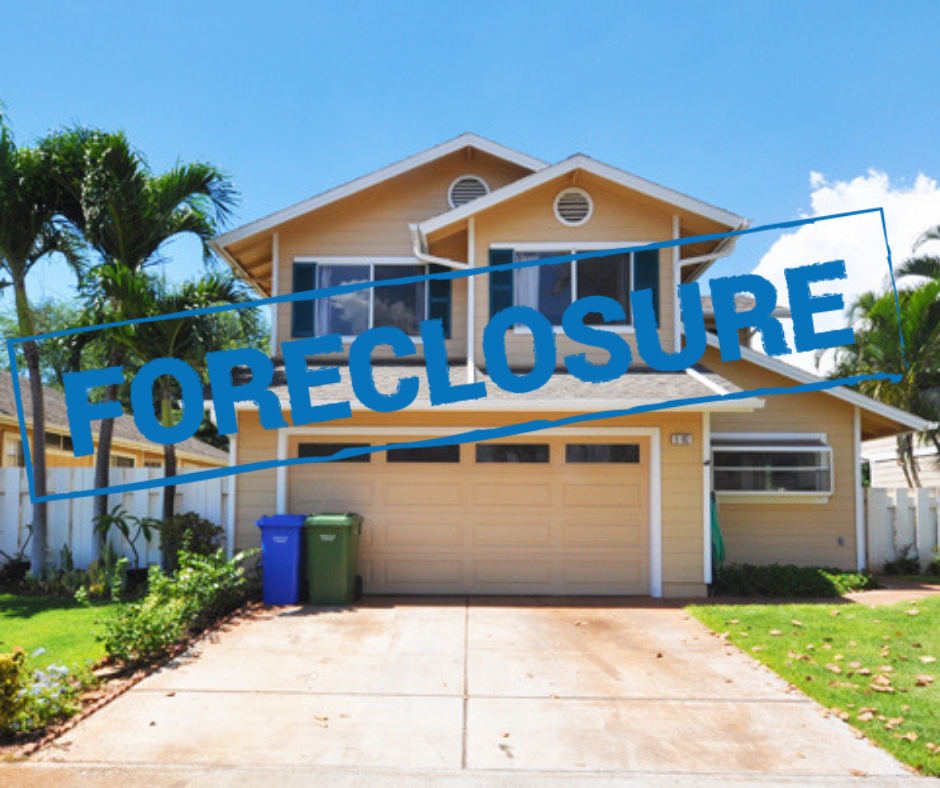What Could Happen?
What exactly happens during foreclosure? Discover the consequences you can expect from Hawaii foreclosures.
Hawaii foreclosures are predominantly judicial. That wasn’t always the case. Back in 2011, Hawaii passed a Mortgage Foreclosure Dispute Resolution Program that only applies to nonjudicial foreclosures.
Under the regulation, a lender seeking nonjudicial foreclosure must offer foreclosure mediation to a homeowner. To circumvent the program, most Hawaii lenders prefer judicial foreclosure. That said, understanding Hawaii property laws will help you do serious damage control even as foreclosure looms.
Read on for tips on how to avoid foreclosure.
Hawaii Foreclosures: What You Need to Know
Under Hawaii law, if a nonjudicial foreclosure is uncontested, a lender may foreclose on a property in as little as 2-3 months. However, with a few legal actions, the process takes much longer.
That’s the power of information. With the right know-how, you can stop foreclosure. Let’s take a closer look at how Hawaii foreclosure laws work:
Foreclosure Oahu: The Hawaii Foreclosure Process
Hawaii law recognizes two types of foreclosure:
- Judicial foreclosure
- Nonjudicial foreclosure
The two are governed by different laws. Let’s look at how each foreclosure is implemented.
Judicial Foreclosures
The Dodd-Frank act of 2010 prevents lenders from initiating a foreclosure unless a homeowner is 120 days delinquent. After the 120 days expire, the lender files a lawsuit (called ‘complaint’ under Hawaii law). The homeowner gets a copy of the same plus summons as stipulated in Haw. Rev. Stat. § 667-1.5.
A homeowner then has 20 days to respond to the lawsuit, failure to which the court rules in the lender’s favor. That said, even after the lender wins the case, sale of the property isn’t legal until a notice of sale is published in a newspaper for three weeks- as stipulated in Haw. Rev. Stat. § 667-20.
Nonjudicial Foreclosures
Nonjudicial foreclosures don’t follow a court process. All a lender has to do is to satisfy the requirements outlined in Hawaii Revised Statutes Section 667 section 21 to section 41.
A notice of the lender’s intent to foreclose on a property must then be published once every week for three weeks; in succession. Sale of a property can only happen at least 14 days after the last notice is published. A notice of sale must also be posted on the relevant property for at least 21 days before a sale.
That said, in Hawaii, nonjudicial foreclosure is only possible where the mortgage has a ‘power of sale’ clause. Otherwise, judicial foreclosure is the lenders only option.
Hawaii Real Estate Foreclosures: Legal Options
So, what are your options during a foreclosure process? Hawaii laws afford you many, let’s look at a few:
The Right to Reinstate
Reinstatement is when a homeowner catches up on all due payments plus any extra charges incurred by the lender. The Hawaii Revised Statutes of 2014 allow you to reinstate up to 3 business days before the sale of a foreclosed property.
Loss Mitigation
During the 120 days before a foreclosure can be initiated, file a loss mitigation application. A loss of mitigation is a request for the lender to offer foreclosure alternatives like a loan modification. If a complete loss of mitigation is submitted within the 120 days, foreclosure can’t proceed unless one of three requirements are met:
- The lender refuses the request and the homeowner has no time to appeal.
- The homeowner refuses the loss of mitigation option offered by the lender.
- The homeowner fails to comply with the terms outlined in the loss of mitigation option offered.
Sell Your House
Hawaii foreclosures can do irredeemable damage to your credit score. Selling your house will save you all that trouble. You also have the added advantage of having a say in how things unfold.
Even if you owe the lender more than what the house is worth, a short sale is an option. This type of sale happens when the lender allows you to sell your house for less than what you owe. Why would they want to do that?
Well, it’s more convenient for them if you conducted the sale yourself. Look at it from this angle, the lender has found someone to market and sell the property at no extra charge to them. Read more on how you can sell your Hawaii house quickly.
Let’s take a closer look at selling your house as an option to avoid foreclosure.
Avoid Hawaii Foreclosures: How to Sell
Contrary to popular belief, lenders don’t like foreclosing on property. After foreclosing, the lender has to own the property and incur all related costs until the house is auctioned. That’s why a foreclosure is always the last resort for most lenders.
When selling your house to avoid foreclosure, you must do it quickly. That’s because you’re only allowed to sell the house before the lender assumes possession of the property. This is why you can’t risk listing with a realtor, it’ll take too much time to finalize the sale.
On that note, read more reasons why selling privately is better than listing with a realtor. Below are three common mistakes that keep houses from selling quickly:
Overpricing the House
Overpricing your house will make you sell for far less than you expect. How is that even possible?
Let me explain.
When you overprice, serious buyers will figure that you are out of their price range. They’ll then settle for appropriately priced properties. Meanwhile, the looming foreclosure makes you desperate to sell, but there’s one problem.
All the serious buyers are gone, it’s now time for the low-ballers. Don’t fall victim to this mistake.
Spruce It Up
You don’t have to do anything major. You neither have the time nor the money for that. It’s the inexpensive fixes that you should focus on.
Some sellers don’t even tidy up the house. Consequently, they get lower prices. Fix the small leaks and caulk the cracks. A little effort will pay off big when the time comes to name your price.
List Price vs Sale Price
Every sale must begin with a Comparative Market Analysis (CMA) that shows how similar houses in your neighborhood were sold recently. Most homeowners make the mistake of valuing their houses using the list prices. That’s just wrong.
To sell quickly, price your house with the average sale price. If you need it to sell quicker, price it a little lower than the average. That way, it’ll come off as a bargain and you’ll sell quicker.
Consequences of Hawaii Foreclosures
The decision to sell is very emotional. With a looming foreclosure, however, you can’t afford to let sentimentalities hold you back. Below are some of the negative ways a foreclosure will impact your life.
Damage to Your Credit Score
Foreclosure drops your credit score by about 250 points. To put that into perspective, lenders want a credit score above 620 points. The damage done to your credit score is only salvageable if you make on-time payments for the next three years.
That’s highly unlikely considering the financial mess a foreclosure lands you in. In other words, a foreclosure increases the need for financial assistance while making it impossible to access the same.
Also, note that Hawaii foreclosures remain on your credit report for 7 years.
The Taxman’s Noose
Losing your house to foreclosure has significant tax implications. Forgiven loans are taxable.
“How am I forgiven a loan when the bank forecloses on my house?” You ask.
Well, if the house should sell for less than what you owed the lender, the balance may be forgiven. The lender notifies the IRS of the deficit by filling out form 1099-C. The IRS then treats the deficit as part of your income, hence taxable.
Let’s put figures to this tax: If you owe $500,000 and your house sells for $300,000, the IRS treats the $200,000 deficit as earnings. Now, do you see what that could do to you?
The only way this tax can be avoided is if the debts are discharged via bankruptcy. If you are thinking that filing for bankruptcy is a good idea, think again. It is detrimental to your credit score and may remain on your credit report for upwards of 10 years.
The Right of Redemption
Some states afford homeowners the right to redeem their houses up to a specified period after a foreclosure is finalized. Unfortunately, Hawaii laws don’t. Once the lender forecloses on a property, it’s gone.
This is why it’s advisable to sell before the foreclosure is finalized. When selling privately, you get a much better price for the house. This is because people who show up to bid for foreclosed properties are usually lowballers.
There is, however, much more respect when people realize they are buying a home from the owner.
In a Nutshell
A looming foreclosure can turn your world upside down. You have to act fast. If the foreclosure is inevitable, cushion yourself from the backlash. The best way to do that is to sell your house quickly.
Here at Crowne properties, we buy houses in Oahu in cash. Most of our sales are finalized in a matter of days. No matter the condition of your house, fill out a form if you want to sell to avoid Hawaii foreclosures.


